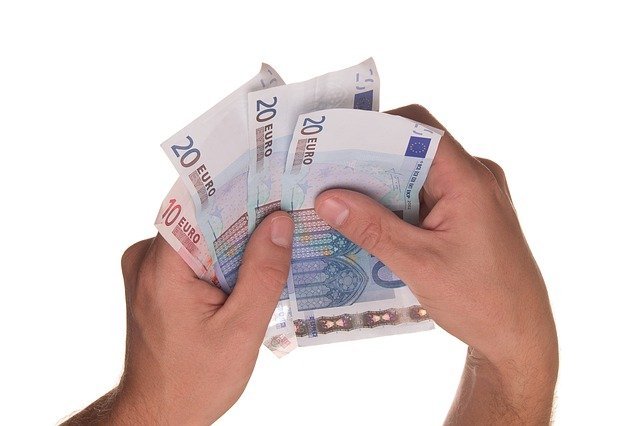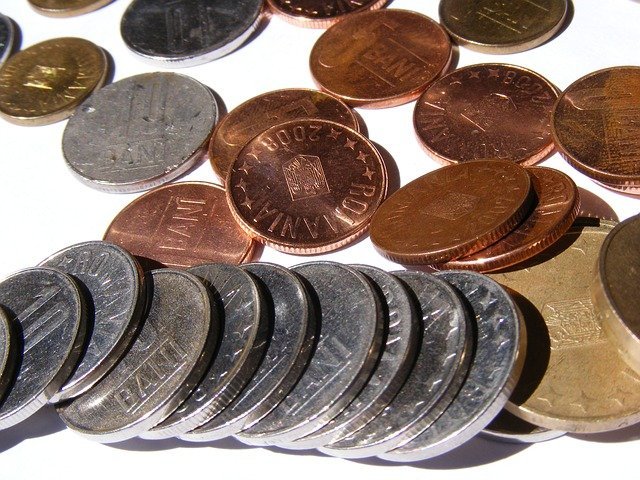
Personal finances are about much more than dollars and sense. It is actually more about good old-fashioned common sense. Learning how to manage finances in the right way has to be learned and sometimes it takes few rough lessons to learn this well. Use the following advice to learn how to implement the right changes to your financial situation to live a life that is less stressful and much happier.
In this economy, it’s best to have multiple savings plans. You may place money in savings accounts, checking accounts, stock investments, high-yield accounts or gold investments. Use these ideas to make sure your money is safe.
Stop spending money on things that promise you money overnight. Too many Internet marketers let their desire for instant gratification cloud their judgment. Learn how to make money the old fashioned way, earning it through hard work and patience.
To understand how you spend money, keep a journal listing every cent you spend for one week. If you are writing things down in a journal and you slack off it will never work for you. Try using a whiteboard in your den or home office to document your finances. By seeing it frequently, it will stay fresh in your mind.
You can improve your finances dramatically by taking advantage of available discounts. Saving with coupons should be more important to you than brand loyalty. As an example, if Tide has normally been your detergent of choice, but Gain has a $3 off coupon available, choose the money savings.
You can buy many foods in bulk and save money. Protein may be bought as a half side of beef which you place in the freezer, or large quantities of poultry or fish that are frozen and individually wrapped. Buying in bulk is generally less expensive if you use everything you bought. It is a time saver to spend time in one day to use this meat and set aside some for a meal each day.
If you are someone who travels the friendly skies often, it may be a worthwhile investment to enroll in a frequent flier program. A lot of credit card companies give rewards based on the amount charged. These rewards can be used to get discounted or free air fare. Frequent flyer miles can also be redeemed for all kinds of rewards, including totally or partially discounted hotel rates.
Buying a lot of food just because it is on sale is not always a good deal. You are only saving money if you are actually using what you purchased; it doesn’t matter if it came in bulk or on sale if you waste it. Be realistic, so you can enjoy a good bargain when you find one.
Try to negotiate some options when a debt collector contacts you for a payment. You debt was probably purchased by them for a low price. They will make a profit even if you do not pay a very large amount. Use this to your advantage to get eliminate debt inexpensively.
You cannot fix your credit before you get out of debt. You’ll need to cut back your spending so that you can completely pay back all your debts. Cook more at home and try to choose only one or two activities to do each weekend. Pack a lunch for work and refrain from eating out too much on the weekends; this can save you quite a bit of money. In order to have better credit, you have to make some sacrifices.
Credit Card
Each time you receive a check, the first thing you should do is put some of it in savings. You will never have any money left for savings if you choose to wait to see what is left on the last day of the month. With the money actually being stored away safe and secure, you have a much lower chance of spending the money on something trivial or impulse-driven.
A credit card can a good alternative to a debit cards, if you pay it off in full each month. You can use your credit cards on daily purchases, like food or gas. Usually, when you have a credit card, you will earn rewards, which will result in cash back for these items.
Not using a credit card at all is one way to stay out of debt and to protect your personal finances. Always think twice and maybe even a third time before charging anything on your credit card. Try to figure out how much time it is going to take to pay it off. Make sure you do not put any charges on your credit card that you are not able to pay off by the next statement’s closing date.

When you travel by air frequently, be sure to be a member of some type of frequent flier program. There are a number of credit cards that give free miles or a discount on air travel with purchases. You may also be able to redeem your miles at certain hotels to get a discount, or even a free room.
An emergency savings account that receives regular deposits is a must for those unexpected issues that can arise. In addition to saving for unforeseen occurrences, you can also save for anticipated events, such as going to college, buying a new car, or paying off the balance on a credit card.
Make sure you’re paying your utility bills on time every month. You can harm your credit rating by paying them late. Additionally, many utilities are going to slap on a late fee that just costs you more of your money. Paying your bills in a timely manner will help you gain control over your finances.
To boost your credit score, it is important to repay existing debts. You’ll need to cut back your spending so that you can completely pay back all your debts. You can make changes like eating out less and limiting how much you go out on weekends. Packing your lunch and avoiding weekend outings can result in great savings, and anyone who really wants to improve their credit should be willing to do so.
It’s always best to plan for the unexpected, sometimes unexpected expenses occur and have to be prepared for. Know what your late fees cost and how many days you can pay past the due date. Make sure you know all of your options before you sign a lease.
It may be a little hard but it’s recommended to use ATMs that your bank owns so that you can save on fees. This can save you quite a bit in the long run. While your cards may work just fine in ATMs that belong to other institutions, they will not hesitate to add finance charges to every transaction you make. These can add up to a significant amount of wasted money.
Do not incur substantial student loans unless there is a strong likelihood that you can repay them. Going to an expensive private school while unsure of your major or what career path you’re going to take, may mean that you end up in permanent debt.
Consider using a software program to help keep track of your budget if the old ways aren’t working. These programs can track your income and expenses, as well as creating a budget plan for you with minimal effort.
One way to help protect your budget is to enroll in overdraft protection through your financial institution. The nominal monthly fee is considerably less than the high charge that often accompanies an overdraft on your account.
Prevention is the best remedy for credit card debt. Before you put anything on your credit card, step back and really think about it. Ask yourself how long it will take to pay off. Unless it’s an essential item, don’t buy more on credit than you can afford to pay off at the end of the month.
Be sure that you view your credit report from time to time. You can also check your report for free. You should check to make sure there aren’t any discrepancies or signs of identity theft on your credit report.
It isn’t called personal finance for no reason. Each person’s finances are different. Only you can decide the best approach for improving your situation. You should now be better equipped to make the wise financial decisions that will allow you to take control. Take note of what you’ve went over here and keep these notes where you can read them when you’re having a hard time financially. You will see a positive outcome if you use the above advice.
Opening a savings account can be very helpful in case of an emergency. Saving for specific goals, like college, is the best way to prepare for expenses that you know will be in the future.

